News from the Institute
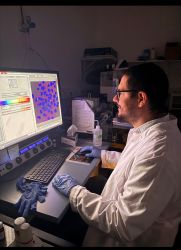
The first Rhine Main Universities (RMU) Award for Pharmaceutical Research & Innovative Medical Therapies, sponsored by the Frankfurt Foundation Quality of Medicines, will go to IBC2 scientist Cristian Prieto-Garcia from the Dikic group. The award recognizes his groundbreaking work uncovering how deregulated RNA splicing drives proteotoxicity, opening new therapeutic avenues.
... (read more)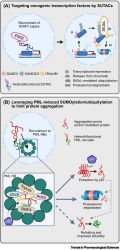
In their recent review (published in Trends in Pharmacological Sciences) IBC2 researchers Gina Gotthardt, Jan Keiten-Schmitz, and IBC2 Vice Director Stefan Müller discuss how SUMO-signaling and SUMO-targeted ubiquitin ligases (StUbLs) can be exploited to inactivate disease-associated proteins. The review explores the new therapeutic possibilities that this opens within the field of drug discovery utilizing the ubiquitin-proteasome system.
... (read more)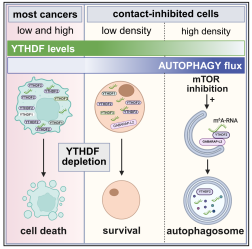
Scientists from IBC2 in collaboration with colleagues from the University of Regensburg show that when non-transformed cells reach high density and contact inhibition kicks in, the m⁶A reader proteins YTHDF1-3 are actively cleared by autophagy, a process that can also be triggered with the mTOR inhibitor Torin1. In contrast, cancer cells that evade contact inhibition retain YTHDF proteins, pointing to a growth-control checkpoint that tumors bypass. The work, led by Alexandra Stolz and Gunter Meister as well as Hung Ho-Xuan as the leading author, links YTHDF stability directly to the mTOR–autophagy axis and suggests coordinated turnover of both proteins and their m⁶A-modified RNA clients by selective autophagy.
... (read more)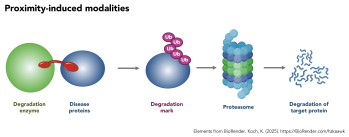
In a now published Perspective in Molecular Cell, scientists from six leading European research institutions, Goethe University Frankfurt, IRB Barcelona, AITHYRA in Vienna, the University of Dundee, and EPFL Lausanne, propose the creation of a European Alliance to accelerate the development of proximity-induced drug modalities. These therapeutic approaches aim to harness the concept of bringing molecules into close proximity to target disease-relevant proteins, many of which are currently considered undruggable.
... (read more)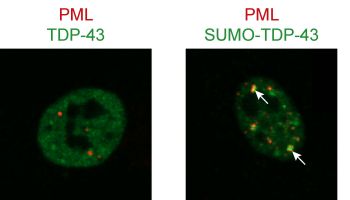
In their publication researchers from IBC2 and collaborating universities have discovered a way to prevent harmful TDP-43 aggregates in cells under stress by redirecting the protein to the cell’s own repair system—offering promising new strategies for treating ALS and other neurodegenerative diseases.
... (read more)